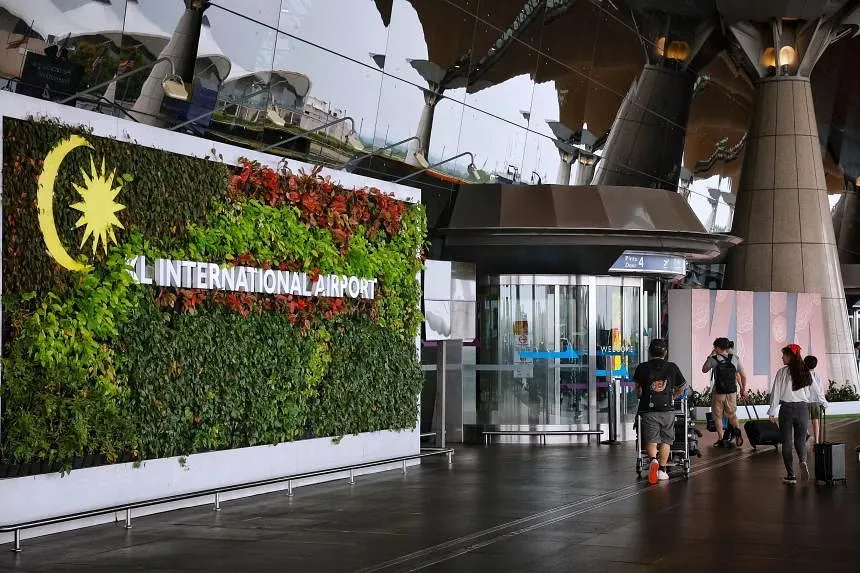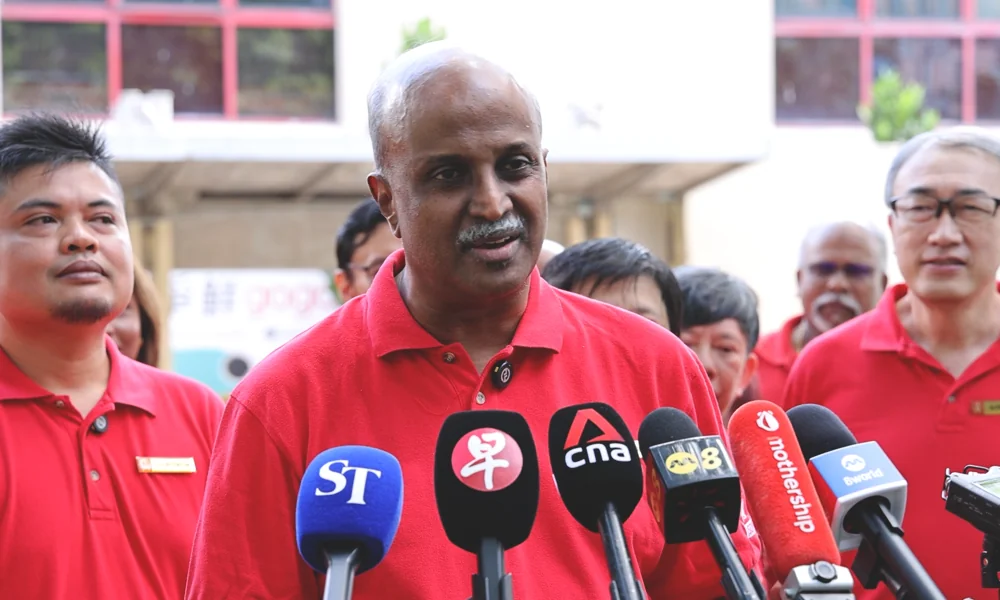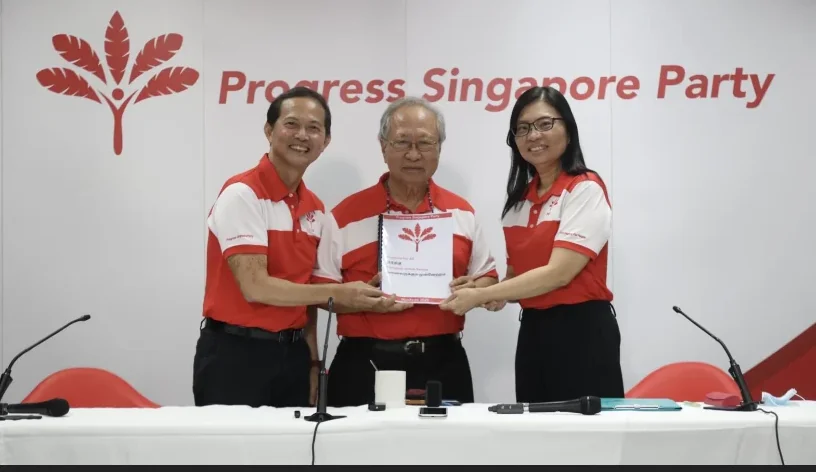冒充移民官员的骗子在马来西亚吉隆坡国际机场勒索外国人钱财
冒充移民官员的骗子在马来西亚吉隆坡国际机场勒索外国人钱财

雪兰莪州雪邦:起初是出租车宰客,现在,另一种骗子据称正困扰着马来西亚的主要机场——他们冒充移民官员,向首次来到的毫无戒心的南亚旅客勒索钱财,从中牟取暴利。 《星报》获悉,在吉隆坡国际机场(KLIA),那些自称是移民局官员的骗子经常会把那些容易上当受骗的旅客——尤其是来自孟加拉国和巴基斯坦的旅客——拉到一边,勒索现金。 一个网名为@khanxze的TikTok用户发布了几段视频,视频中一名男子涉嫌向一名首次抵达马来西亚的巴基斯坦男子勒索钱财,事件由此曝光。“当我在吉隆坡国际机场 1 号航站楼的到达大厅时,一名垂头丧气的男子走近我,问我会不会说乌尔都语,我说会。这名男子告诉我,一名自称是移民官的陌生人从他身上拿走了 300 马币(85 新元)。”这名 TikTok 用户写道。 Khan先生说,他观察了这一情况,发现首次旅行的旅客,尤其是来自巴基斯坦的旅客,都会被索要现金。 他与所谓的冒牌“官员”的男子对峙,要求对方做出解释。该男子要求他离开。 在视频中,可以听到这名骗子告诉Khan先生,他会向每位旅客收取 200 令吉,他只是以此为生。“Jangan kacau. Kita ambil RM200 to RM300 tak ada masalah. (别烦我,我们只拿两三百令吉,没有问题的)”。Khan 先生说。 他补充说,此类事件给国家抹黑。 当《星报》联系他时,Khan 先生说他在机场接他的妹妹时,遇到的这名巴基斯坦男子。他随后向机场运营商马来西亚机场控股有限公司(MAHB)进行了投诉。“我将投诉通过电子邮件发送给了马来西亚机场控股公司。我收到了回复,要求我也向警方报案,但我还没有这样做。”他在电话中说,“不过,我希望有关部门能够迅速采取行动,因为这有损我们的形象。”当《星报》在机场到达大厅遇到食品店员工时,他们证实也看到过这些骗子。 一名员工说,在他工作地点对面的餐馆里经常坐着一群男人。“我们注意到,几乎每天都会有几批旅客被这些人拦住”,这名员工说。“我们不清楚发生了什么,但根据我们听到的消息,确实有一名男子会向这些旅客要钱。”这名员工补充说,这些兜售者几乎每天都会回到同一地点,并将目标锁定在那些看起来容易受到伤害的人身上,尤其是第一次来到这个国家的外国劳工。 然而,自从 4 月 12 日发布的第一段视频在网上疯传之后,就再也没有人见过这伙人了。“我希望能对此采取一些措施。他们显然做错了什么”,这名员工说。 与此同时,一名在吉隆坡国际机场一家食品店工作的外籍人士说,几乎每天都会有五六个人过来。“他们中有两到三个人驻扎在入境大厅,另外两到三个人(会)在食品店。”“几个月前,其中一名受害者告诉我,他们向他索要200马币”,他在《星报》上说。 他补充说,“他们会拍下刚抵达的外国人的护照照片,然后向他要钱。”这名员工还声称,有人看到其中一些人戴着似乎是机场员工所用的标签。 他说,“他们的目标是巴基斯坦人或孟加拉国人,这些人看起来很容易上当,而且是第一次抵达马来西亚。”其他社交媒体用户称他们也遇到过同样的情况。 一名社交媒体用户称,骗子向他的兄弟索要3000令吉;而另一名社交媒体用户称,她的朋友被索要900令吉,尽管其已经通过了移民程序。 移民局表示正在调查此事。“这项指控有损移民局的形象,令人严重关切。我已经指示进行调查,并找出主谋”,移民局局长拿督鲁斯林(Ruslin Jusoh)告诉《星报》。 拿督鲁斯林说,吉隆坡国际机场的移民局也已就此事向警方报案。 他说,“这将使当局能够调查移民局人员索要钱财的指控。”与此同时,马来西亚机场控股有限公司(MAHB)表示已向警方提出此事,以进行“彻底调查并采取适当行动”。 当局敦促旅客和公众在遇到类似情况时立即向当局报告。 另外,旅游业者表示,出现向旅客勒索钱财的骗子可能不利于马来西亚的形象。 马来西亚旅游和旅行社协会(MATTA)会长黄(Nigel Wong)说,“这些人的存在肯定会玷污马来西亚的形象,尤其是对第一次来马来西亚的游客而言。”他呼吁对这些骗子采取更严格的执法措施。 他说,“虽然我们承认当局目前所做的努力,但这种情况的反复出现清楚地表明,这个问题还没有得到充分的解决。”马来西亚旅游和旅行社协会期望对此类人员采取更严格的执法和更严厉的处罚。 入境旅游联盟主席乌扎伊迪-乌达尼斯(Uzaidi Udanis)敦促游客提高警惕,向当局报告此类事件。 他说,“一般来说,只要一个目的地受到游客欢迎,就会有人试图从中渔利”。他补充说,“许多国家都存在欺骗现象。”“他们(骗子)倾向于关注某些游客群体,认为可以利用他们。游客必须提高警惕。”星报/亚洲新闻网






